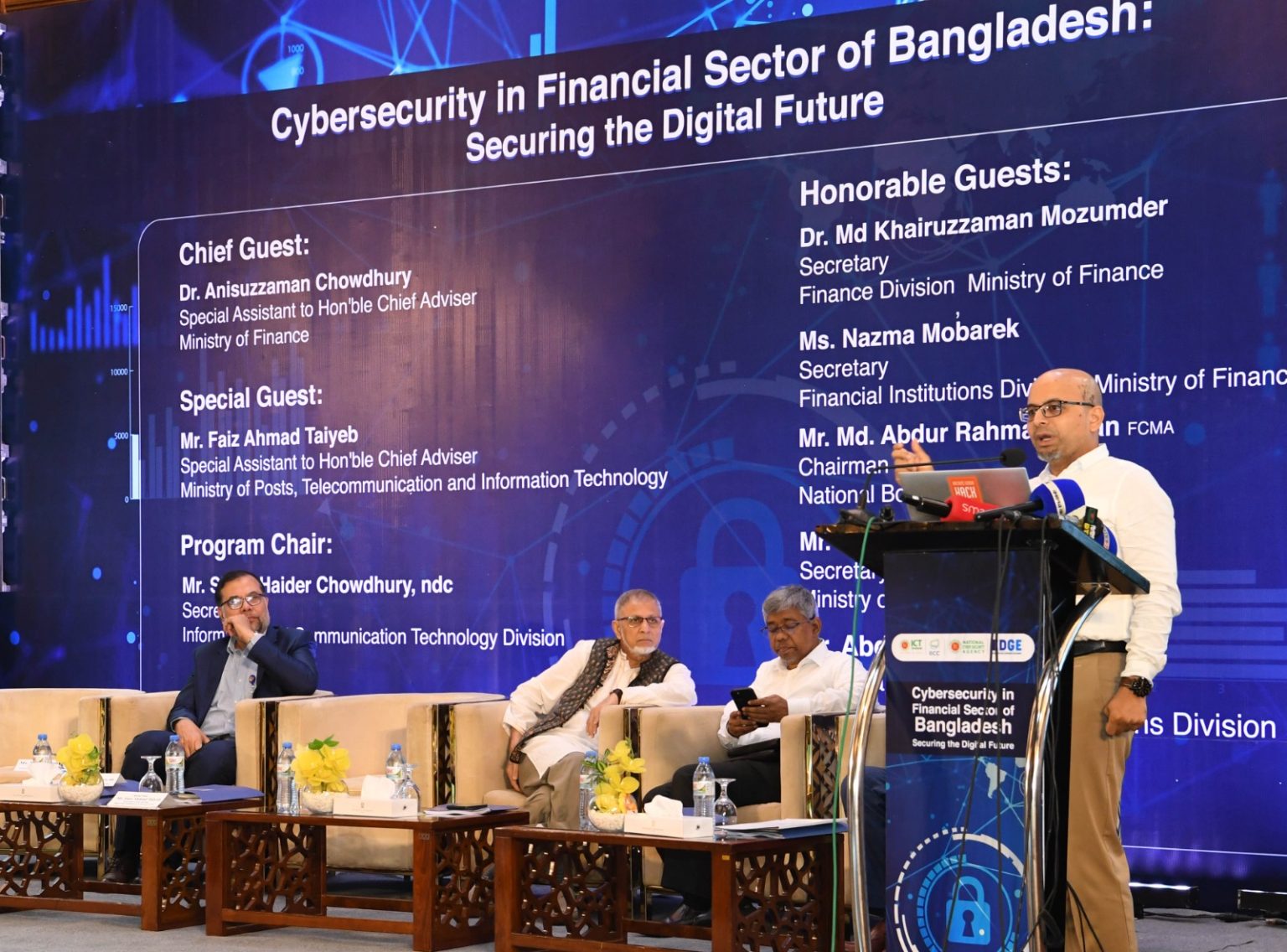Faiz Ahmad Taiyeb, special assistant to the chief adviser on the Ministry of Posts, Telecommunications, and Information Technology, stated, “Ensuring cybersecurity in the banking sector ahead of the elections is a major challenge. Only 17-20 banks in the country have satisfactory cybersecurity ratings. Data of the public is often exposed insecurely, and some bank officials are also involved in cybercrime.”
He made this statement while addressing a national seminar titled “Cybersecurity in Financial Sector of Bangladesh: Securing the Digital Future” held on 19 August 2025 at the Pan Pacific Sonargaon Hotel in Dhaka. The event was a joint initiative of the National Cyber Security Agency (NCSA) and the EDGE project under the Ministry of Information and Communication Technology.
Faiz Ahmad Taiyeb further pointed out that financial crimes, gambling, software update gaps, file transfer protocol vulnerabilities, DDoS attacks, and data center risks are now major threats to the banking sector’s cybersecurity.
In his speech as the Chief Guest, Dr. Anisuzzaman Chowdhury, Special Assistant to the Chief Adviser on the Ministry of Finance, emphasized the need to strengthen the current cybersecurity infrastructure and raise awareness through public-private partnerships.
Nazma Mobarek, Secretary of the Financial Institutions Division, stressed the importance of strengthening training in state-owned banks and improving coordination between IT and business units.
Md Abdur Rahman Khan, Chairman of NBR, proposed simplifying tax collection through data exchange with banks.
Md Chibgat Ullah, Chief of the CID, reported that there have been 884 cybercrime complaints since January 2025, adding that reluctance from banks to file cases has been hindering investigations.
Representatives from BRAC Bank, IFIC Bank, and City Bank, among others, also participated in the discussion, offering insights on how to address technological challenges in the sector.
The seminar was chaired by Shish Haider Chowdhury NDC, Secretary of the Ministry of Information and Communication Technology.
Speakers at the seminar agreed that ensuring the cybersecurity of financial institutions is crucial not only for securing the digital future but also for maintaining public trust and the stability of the financial sector. Stakeholders from various ICT departments and organizations also attended the event.


